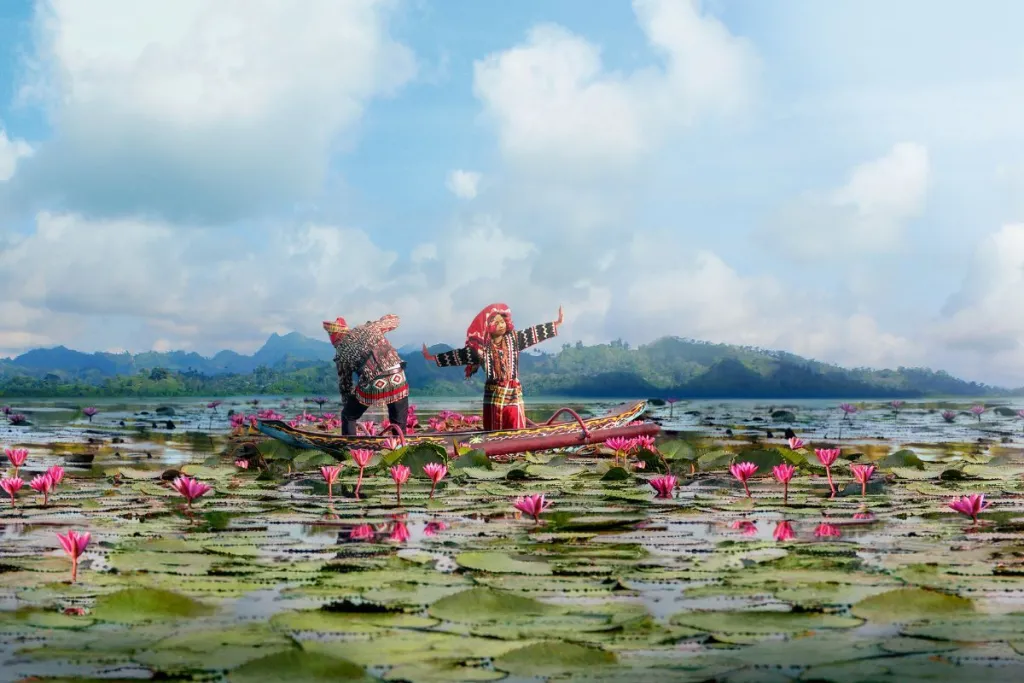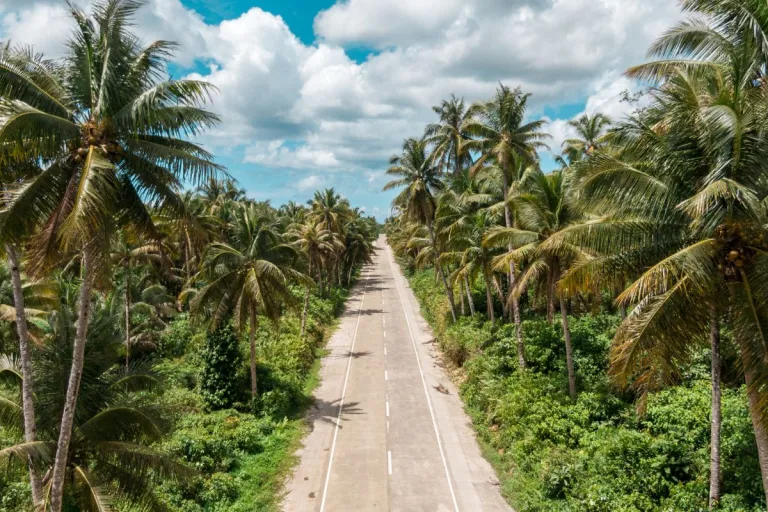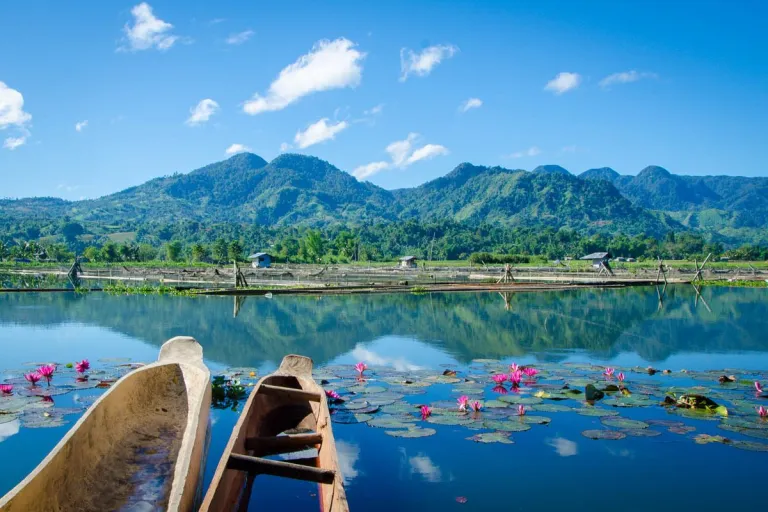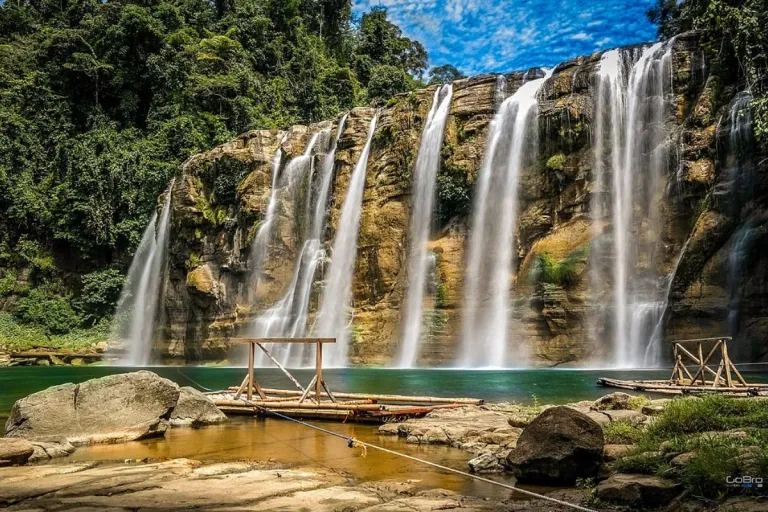Kowloon offers halal‑certified options for every craving Muslim travellers!
The Philippines Just Launched a Digital Nomad Visa: Are You Eligible to Apply?

If you’ve ever dreamed of working remotely from a tropical island where the call to prayer echoes gently in the background and halal food stalls serve up freshly grilled seafood with a side of sambal, then here’s some exciting news: the Philippines is officially launching a Digital Nomad Visa. Whether you’re a freelancer, tech professional, writer, or entrepreneur, this could be your opportunity to live legally and work remotely from one of Southeast Asia’s most underrated destinations. And yes, it’s becoming more Muslim-friendly too.
Also read: 10 Best Halal-Friendly Destinations in The Philippines for Muslim Travellers
Why the Philippines might be your next digital nomad base?
 The Philippines isn’t always the first place that comes to mind when Muslim travellers think about long-term stays in Asia. But this archipelago of over 7,000 islands is home to stunning landscapes, warm hospitality, and English-speaking locals—a huge plus for first-time visitors. Over the years, more halal eateries and Muslim-friendly accommodations have popped up in major cities like Manila, Cebu, and Davao. Meanwhile, Mindanao offers a deeper Islamic heritage, with Muslim-majority areas and rich cultural traditions.
The Philippines isn’t always the first place that comes to mind when Muslim travellers think about long-term stays in Asia. But this archipelago of over 7,000 islands is home to stunning landscapes, warm hospitality, and English-speaking locals—a huge plus for first-time visitors. Over the years, more halal eateries and Muslim-friendly accommodations have popped up in major cities like Manila, Cebu, and Davao. Meanwhile, Mindanao offers a deeper Islamic heritage, with Muslim-majority areas and rich cultural traditions.
The cost of living is relatively low compared to neighbouring countries like Singapore or Japan, and the emerging coworking scene is putting cities like Siargao and La Union on the digital nomad map. Whether you prefer fast-paced urban life or a quiet seaside town, there’s a spot in the Philippines to match your vibe.
What is the Digital Nomad Visa all about?
In April 2025, the Philippine government passed Executive Order No. 86, giving the green light for a new type of visa targeting digital nomads. The goal is simple: attract remote workers with foreign income who can contribute to the local economy, without taking local jobs. Applications for this new visa are expected to open in late June 2025, with a pilot rollout not long after.
Who can apply for the visa?
Not everyone will qualify, but if you’re working remotely and meet a few specific requirements, you might be in luck. To be eligible, applicants must be at least 18 years old, earn a minimum of around USD $2,000 per month, and have a job or freelance contract with a company based outside the Philippines. You'll also need proof of income, such as payslips or bank statements, valid private health insurance, and a clean criminal record.
Importantly, your country must offer a reciprocal digital nomad visa to Filipinos and have a Philippine consulate or embassy. So far, not all Western countries meet this condition. However, if you’re from Malaysia, the UAE, or other countries with similar visa offerings, you could be eligible.
Is the Philippines a Muslim-friendly destination?
 While predominantly Christian, the Philippines is home to a vibrant Muslim community, especially in the southern region of Mindanao. In cities like Manila, Cebu, and Davao, Muslim travellers can find halal restaurants, mosques, and prayer spaces in airports, malls, and even hotels. Mobile apps like HalalTrip or Muslim Pro make it easier to locate halal food and prayer spots.
While predominantly Christian, the Philippines is home to a vibrant Muslim community, especially in the southern region of Mindanao. In cities like Manila, Cebu, and Davao, Muslim travellers can find halal restaurants, mosques, and prayer spaces in airports, malls, and even hotels. Mobile apps like HalalTrip or Muslim Pro make it easier to locate halal food and prayer spots.
If you're seeking a more immersive cultural experience, Mindanao’s provinces like Marawi, Zamboanga, and Cotabato showcase centuries-old Islamic traditions, mosques, and rich local cuisines. These destinations are particularly appealing for Muslim digital nomads interested in blending work, culture, and faith.
Also read: 3-Day Halal-Friendly Mindanao Adventure Itinerary
How long can you stay on the visa?
The new Digital Nomad Visa allows for an initial one-year stay, with the option to renew for another year. That means you could spend up to two years legally living and working in the Philippines. The visa also allows for multiple entries, which is perfect if you plan to travel back and forth or explore neighbouring countries in between work breaks.
How much will it cost?
While final fees haven't been confirmed, the visa is expected to cost between USD $35 (S$45) and $300 (S$386), depending on processing times and embassy procedures. On average, processing may take two to three months, although some fast-track options might be introduced in the future. Keep in mind that additional costs may apply for document authentication or translations if required by the consulate.
How to apply for the Digital Nomad Visa?
The application process will likely be managed through the Philippine eVisa platform or your nearest Philippine embassy or consulate. You’ll need to prepare a list of documents, including your valid passport, employment or freelance contract, proof of income, health insurance certificate, and police clearance. Once submitted, your application will be reviewed and, if needed, you may be asked to attend an in-person appointment at your local consulate.
It’s a good idea to keep an eye on announcements from the Philippine Bureau of Immigration and Department of Foreign Affairs for official updates in late June.
Best places in the Philippines for Muslim digital nomads

Image credit: Wikimedia Commons
So, where should you go once your visa is approved? For those who want the comforts of city life with Muslim-friendly amenities, Cebu City and Davao are top picks. Both have halal food options, prayer facilities, and decent internet connections. Manila, the capital, is bustling and busy, but offers plenty of co-working spaces and halal restaurants.
Looking for island life? Siargao and Palawan are perfect for those craving natural beauty and a slower pace. While they may have fewer halal options, stocking up on groceries and cooking your own meals can help bridge the gap. Plus, these areas are quickly evolving to meet the needs of international travellers.
Also read: Beyond Adobo: 13 Must-Try Halal Filipino Dishes For Muslim Travellers
Final thoughts: A new home base for Muslim nomads?
The Philippines may not yet rival Malaysia or Indonesia in terms of halal tourism infrastructure, but it’s quickly becoming a viable option for Muslim digital nomads looking for something new. With stunning scenery, friendly locals, and a Digital Nomad Visa in place, it could be the perfect place to combine work and wanderlust—while staying connected to your faith.
So if you’ve been craving a lifestyle shift, this might be your sign. Grab your passport, pack your prayer mat, and get ready to say Mabuhay to your next big adventure.
______________________________________________________________________________________________________
Images credit: Tourism Promotions Board (TPB) Philippines
Published at
About Author
Aimi Zulkiflee
Subscribe our Newsletter
Get our weekly tips and travel news!
Recommended Articles
15 Best Halal Foods in Kowloon, Hong Kong Top Muslim-Friendly Things to Do at The Newest Antara Genting Highlands It’s located between Peacehaven Campsite and Cradle Rock Genting Highlands, along Jalan Utama Genting Highlands
10 Best Halal-Friendly Destinations in The Philippines for Muslim Travellers Not just Boracay...
10 Best Places for Muslim Travellers to See Tulip Festivals in 2025 Fun Fact: Tulips didn’t actually come from the Netherlands but Türkiye!
10 Halal Anime Food Guide for Muslim Travellers in Japan Muslim-friendly versions of popular anime dishes across Japan!
Latest Articles
10 Most Stunning Camping Spots in Yogyakarta, From Mountain Peaks to Riversides for Muslim Adventurers Level up your adventure!
10 Nature-Themed Cafes in Batu, Malang for A Halal-Friendly and Soul-Soothing Escape Escape to nature!
10 Best Hotels in PIK Jakarta for a Fun Family Staycation: Strategic & Stylish perfect destination for a quick weekend escape or a fun-filled family staycation
No Flight Needed! 9 Jakarta Hotels That Give You Major Bali Vibes Jakartahides some secret "oases" that can make you feel like Bali
17 Stunning Filming Locations of "Can This Love Be Translated?": From Japan to Canada not just the romance that’s stealing the spotlight—it's the breathtaking scenery

